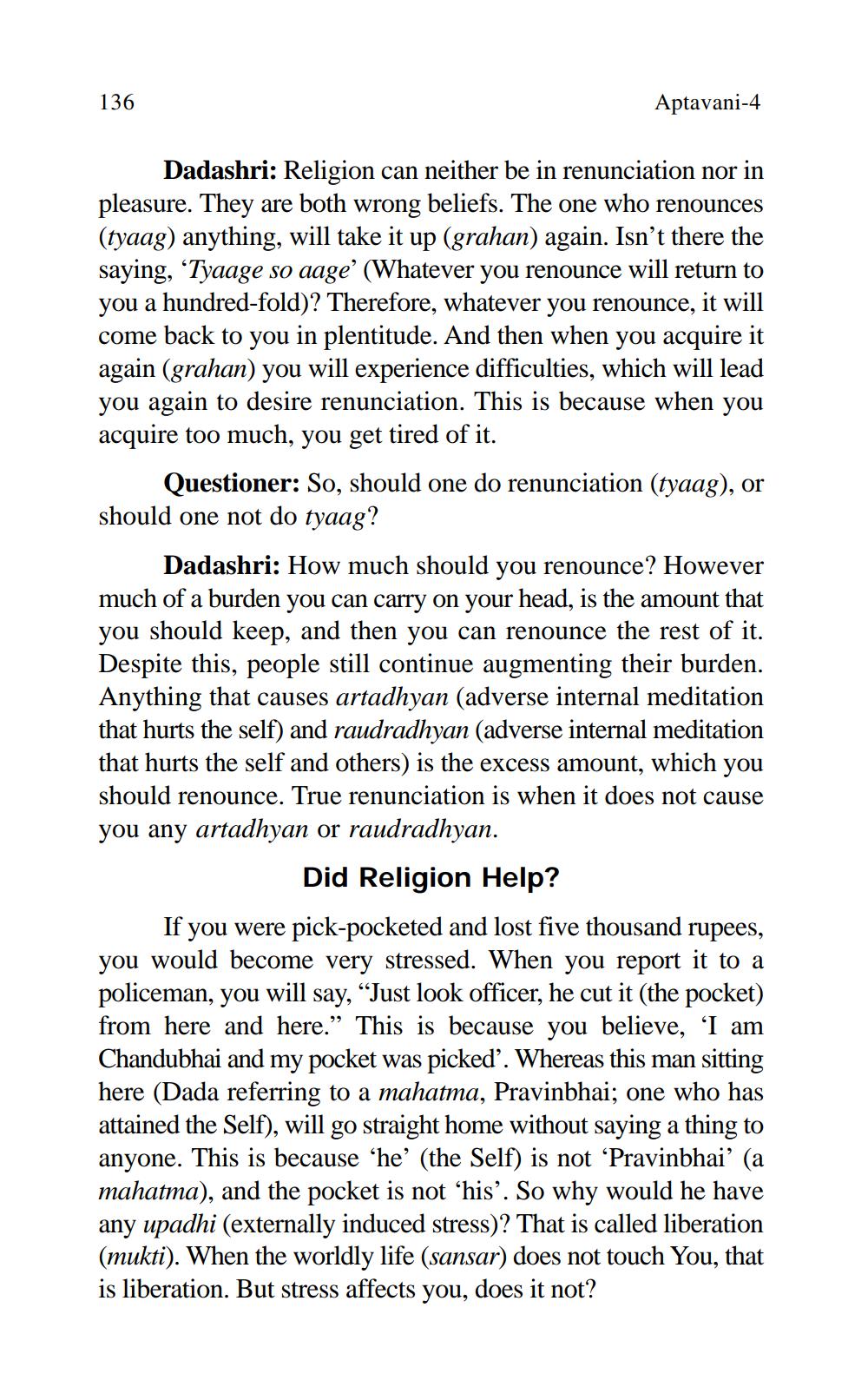________________
136
Aptavani-4
Dadashri: Religion can neither be in renunciation nor in pleasure. They are both wrong beliefs. The one who renounces (tyaag) anything, will take it up (grahan) again. Isn't there the saying, “Tyaage so aage' (Whatever you renounce will return to you a hundred-fold)? Therefore, whatever you renounce, it will come back to you in plentitude. And then when you acquire it again (grahan) you will experience difficulties, which will lead you again to desire renunciation. This is because when you acquire too much, you get tired of it.
Questioner: So, should one do renunciation (tyaag), or should one not do tyaag?
Dadashri: How much should you renounce? However much of a burden you can carry on your head, is the amount that you should keep, and then you can renounce the rest of it. Despite this, people still continue augmenting their burden. Anything that causes artadhyan (adverse internal meditation that hurts the self) and raudradhyan (adverse internal meditation that hurts the self and others) is the excess amount, which you should renounce. True renunciation is when it does not cause you any artadhyan or raudradhyan.
Did Religion Help? If you were pick-pocketed and lost five thousand rupees, you would become very stressed. When you report it to a policeman, you will say, “Just look officer, he cut it (the pocket) from here and here.” This is because you believe, 'I am Chandubhai and my pocket was picked'. Whereas this man sitting here (Dada referring to a mahatma, Pravinbhai; one who has attained the Self), will go straight home without saying a thing to anyone. This is because he' (the Self) is not ‘Pravinbhai' (a mahatma), and the pocket is not ‘his'. So why would he have any upadhi (externally induced stress)? That is called liberation (mukti). When the worldly life (sansar) does not touch You, that is liberation. But stress affects you, does it not?




